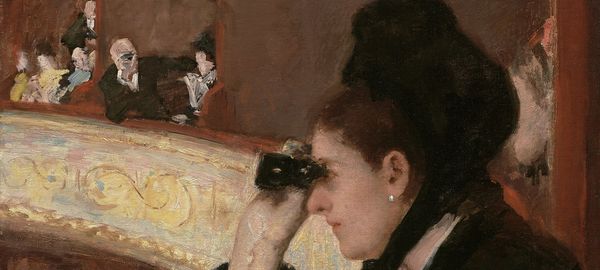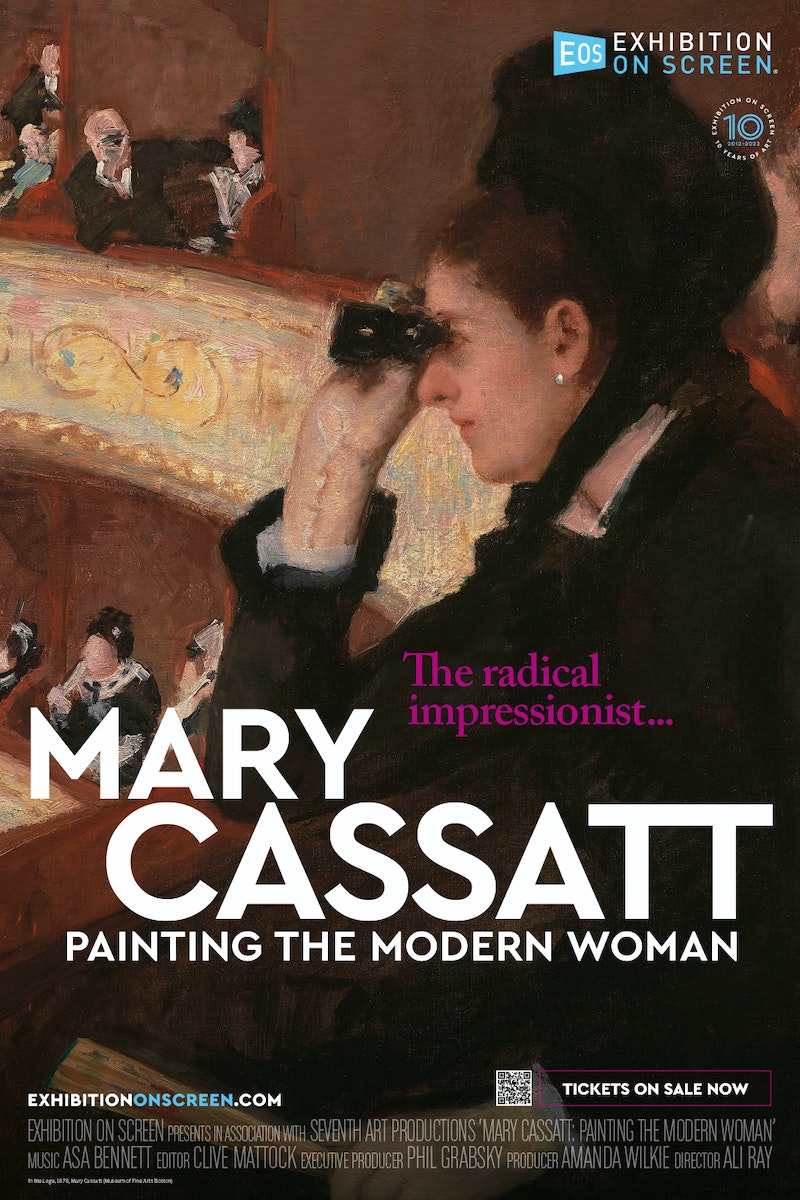Eye For Film >> Movies >> Mary Cassatt: Painting The Modern Woman (2023) Film Review
Mary Cassatt: Painting The Modern Woman
Reviewed by: Jennie Kermode

“Women should be someone and not something,” said Mary Cassatt, the Pennsylvania-born artist who shook up the establishment in the late 19th and early 20th Centuries with her uncompromising reinterpretation of feminine subjects long framed by the male gaze. In this latest contribution to the Exhibition On Screen series, director Ali Ray explores her paintings, printmaking and pastels whilst also looking at her interactions with contemporaries and the tremendous influence she acquired through promoting others’ work.
“There’s something difficult and ugly about her work...she frustrates a lot of people” says Vancouver art historian Nicole Georgopulos in a not uncomplimentary way. Difficult is, after all, a term increasingly worn as a badge of pride by women who have carved out careers in male-dominated fields. It reflects a willingness to go against the grain, to set aside mere perfectionism and seek instead to interrogate the standards against which art is judged. In Cassatt’s case, it was not only art which was at stake, but women’s position in society, a matter which she was problematising in the very earliest days of the modern feminist movement.

Giving such a subject its due requires not only the right artist but also viewers and critics capable of looking at her work and seeing within it what she intended to convey. There is a strong focus here on helping viewers to achieve that. Again and again, little gestures and nuances in the subjects’ expressions are highlighted. Look long enough and apparent indulgence gives way to frustration, girlish affection to arch criticism, flirtation to long-suffering sighs. Where there are men in the pictures, the women generally pay no attention to them, or look as if they wish they’d go away. They are absorbed in their own affairs, always doing something, and always for their own obscure reasons.
To the beholder, a rebellious subject can be mocked or condescended to. A subject who shows no interest at all is much more difficult to stomach. Though often dismissed as overly concerned with motherhood and domesticity – themes which might decorate womanly objects like stationery and cushions, but which have rarely been thought appropriate for grand galleries – Cassatt’s works are unashamedly political, exploring realms of being in which women do not need men, establishing them as individuals with wholly separate lives.
How did she get away with it? As the film quickly establishes, for a long time, she didn’t. Early paintings like The Mandolin Player might slip by because their messages were subtle and they resembled the work of Old Masters, whose style she was more than capable of appropriating to her own ends, but her true interests lay elsewhere. Fortunately, she was active in an era of rapid artistic evolution, and although she has never been given the same platform as her male contemporaries (something which this film attempts to remedy), this provided opportunities to break through. She even (until Edgar Degas begged her to stop) exhibited at the notoriously conservative Salon de Paris.
From her time in the artists’ colony at Ecouan to the tragic loss of several of her works in the Great Chicago Fire, her time in Seville and Paris and her eventual return to the US, the film explores how her movements influenced her art and how she explored different trends over the course of her career, demonstrating a remarkable flexibility. She is a forceful presence in a surviving photograph, tall and gaunt and elegantly attired in black, her spirit never quenched despite her many battles and, at times, her close proximity to actual war. An additional impression of strength is conveyed by her ability to handle these matters without losing the vulnerability, the delicacy needed to explore others’ emotions in the intimate way that she did.
A vast number of her works are presented here, including paintings which are difficult to access in print form and rarely put on public display. Encountering them mostly in chronological order, but with a little movement back and forth to explore different themes, one is able to appreciate how her talent and ideas evolved. One of the strongest entries to date in this prestigious documentary series, this is a film which anyone with the least interest in pictoral art should consider required viewing.
Reviewed on: 07 Mar 2023















